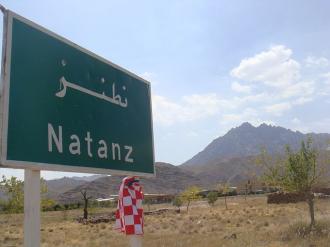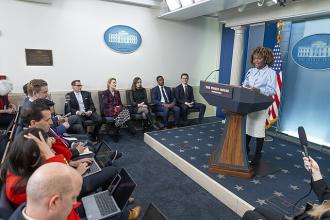Baltimore, MD - Dec. 5, 2019 - I love to attend Rabbi Silber’s parshah shiur on Wednesday nights. He is very clear and articulate. If I stare at his face, I’m OK. But I miss a few words when he turns his head the other way. That is why I am so excited about the unearthing of a fabulous speech-to-text technology made in Australia called OTTER. Otter is a free download on any smart phone or device that can transcribe everything you say in real time. It picks up a voice from within three feet but if you attach a microphone, you can stand further away and still enjoy its benefits.
I started losing my hearing about 40 years ago and more recently I had to stop attending public lectures. But one year all my friends were talking about going to attend WIT’s video presentation by Rabanit Mizrachi. So, in 2017 I approached JADE: Jewish Advocates for Deaf Education, a program of the Mack’s Center for Jewish Education, about the need for captioning. After a little cajoling, they jumped onto the bandwagon and started the Jewish Captioning Initiative.
So much has happened since then including the establishment of the JADE Access Grant that offers $100 toward captioning of videos with Jewish content and local tech support for how to add captions by self-taught expert, Martha Goodman, who works at CJE but figured this out on her own time!
WIT was the first organization to take advantage of the new Access Grant. Using a professional transcriptionist, Martha and a few volunteers rushed to have Rabbanit Mizrachi’s Pesach 2017 video captioned in time for the public showing and this opened up a new world to me! When a class is properly captioned, I am able to understand the complete lecture that I came for. I had always wanted to "hear" Rabbanit Mizrachi, but was unable to go to her video presentations without feeling frustrated. She includes a lot of Hebrew and her voice fluctuates. It was so hard to understand. With captions on the video screen I was able to understand this fantastic speaker and gain so much insight.
Recently, some friends I met through JADE discovered a free app called Otter that provides transcriptions on your phone in real time and this has been life changing for me! I can go to a lecture and use Otter on my phone to catch whatever I miss. Ideally, any public lecture or video presentation would have Otter’s live transcription projected onto a large screen near the speaker so that I can watch both at the same time AND SO MANY OTHER PEOPLE IN THE AUDIENCE CAN FOLLOW ALONG, TOO! It does not yet recognize Hebrew, but we are working on that.
Hearing loss runs in my family and my cousin, Liz, is going through similar disruption to her daily activities. When the two of us recently went out to eat at a restaurant with some family, Liz was having trouble keeping up with the conversation. I suggested that she pull out her phone. Using Otter, Liz was able to read what people at her table were saying and participate in the conversation.
Liz has a boatload of stories that she recounts with humor, although they are not always funny at the time. “A few months ago, I was in the grocery store waiting on line. The lady in front of me left and as I moved up in line, I said good morning to the cashier. ‘I already said good morning and you didn’t answer me,’ the cashier snapped at me. I realized there may be a lot of people who think I am rude when really, I just cannot hear them!”
Another incident at the grocery left Liz really rattled. “Just today somebody came up to me and scared the lilly-liver out of me when she tapped me on the shoulder. She probably said excuse me, but I didn’t hear her!” It affects the way she conducts her daily activities, from not understanding the man at the cleaners to not hearing the doctor’s receptionist on the phone. “It turned out I had the wrong number, but I couldn’t hear him telling me that! I have to figure out other accommodations to survive, and I do mean survive,” Liz shares.
My husband says he is going to get me a t-shirt that says “I am hard of hearing” so that when we are walking and a biker rings his bell to warn me to move over, he will not think I am intentionally strolling in his path. My husband is constantly yanking me out of the way in the nick of time! The ADA, Americans with Disabilities Act, was created over 25 years ago and resulted in many changes, such as curb cuts at crosswalks. In many ways, though, the ADA addressed more visible disabilities; there are a lot of disabilities that you don’t see. Deafness is one of them.
Shabbos and Yom Tov are especially challenging for people with a hearing loss. Conversation around the table rolls at lightning speed and if you miss a word or sentence, you are left out of the conversation, and therefore, feel left out of the family. It is so important for people to speak slowly and clearly, without over-enunciating, so that we can read their lips. “I do a lot of smiling and nodding because I don’t want to appear lout of the loop,” confesses Liz. It is also helpful when people check in with me to see if I heard what the person says, instead of assuming it was understood. For example, a person can ask, “Dina, did you hear that?” to make sure I am keeping up with the conversation. The worst infraction to a person with a hearing loss is when someone says, “Forget about it,” or “Never mind.” That hurts the most.
Before your next Shabbos meal with a friend or relative with a hearing loss, and definitely before your family Chanukah party with grandparents, watch these 10 Tips on How To Communicate With A Person Who Is Deaf Or Hard Of Hearing. And if it’s not Shabbos, download Otter at the table!
If you are planning a public lecture or video presentation for your shul, school or organization, please consider using Otter to accommodate people with a hearing loss. Contact CJE to learn more: yzelinger@cjebaltimore.org















